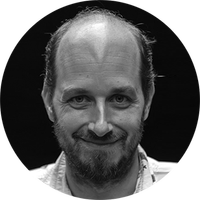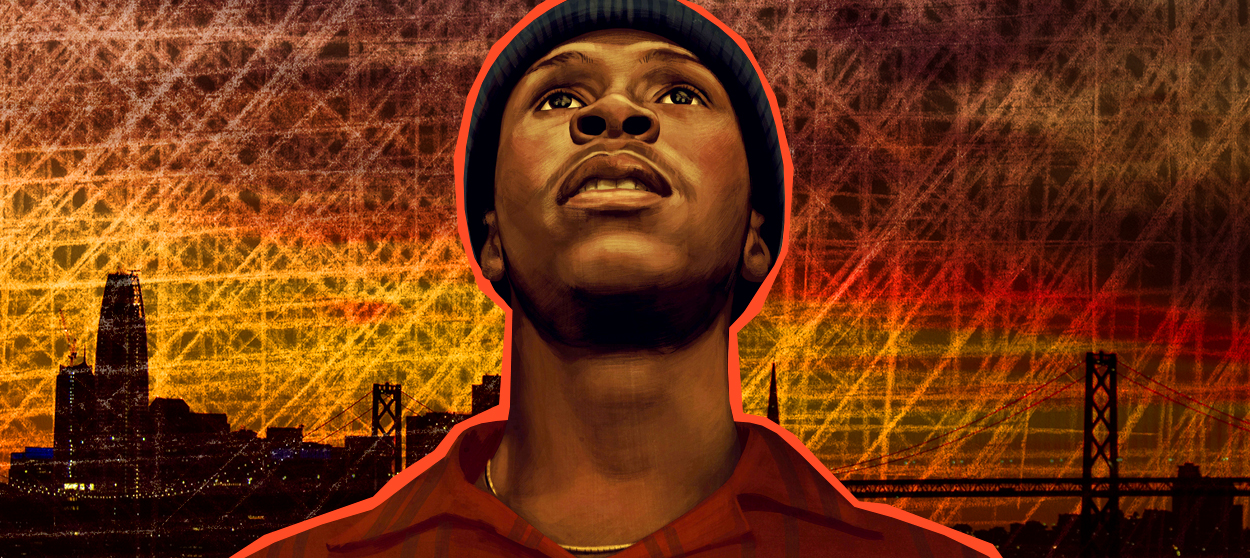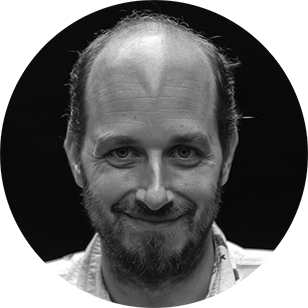What The Last Black Man in San Francisco, a movie ostensibly about gentrification, leaves out about gentrification
A beautiful movie, with a puzzlingly apolitical point of view


A free daily email with the biggest news stories of the day – and the best features from TheWeek.com
You are now subscribed
Your newsletter sign-up was successful
Is The Last Black Man in San Francisco a movie about gentrification? The answer seems easy — it obviously is. As the title proclaims, and as every preview and review of this much-hyped film manages to mention, the titular black man's Quixotian efforts to reclaim his family's Fillmore home takes place against the backdrop of San Francisco's plummeting black population. "We built these ships, we dredged these canals, in a San Francisco they never knew existed," the protagonist proclaims at the beginning of a trailer that ends with the words that give the movie its title. "I'm the last one left."
But what is gentrification? The word's obviousness is a trap. It's so familiar and so generally lamented that it can seem like weather or the economy, something that's just there, that just happens. In the Bay Area, we tsk and shake our heads, noting statistics and trends and bemoaning the transformation of cities like San Francisco. But then we tend to throw up our hands; what, after all, is to be done? Even gentrifiers themselves often join the consensus that gentrification is bad. (One of the best jokes in the movie is that our protagonist's white adversaries — the white gentrifiers in his house and the white realtor who sells it — are given to spontaneously declaring how great it is that he's still there, how glad they are to see a black man in the city still making it work.) Gentrification is a tragedy, everyone agrees, but no one seems to be at fault.
When director, screenwriter, and San Franciscan Joe Talbot regrets how his city has changed — "We still want to make it home. We just also recognize that it can feel at times nearly impossible. It's so damn expensive" — the loss he's lamenting could happen to anyone who is priced out of the city they grew up in, an increasingly generalized and generational experience. But is this what "gentrification" means? That Talbot is white sits awkwardly atop this movie he directed and co-wrote with another white screenwriter (though the story is based on the life of Talbot's best friend Jimmie Fails, who stars as "Jimmy Fails" and helped conceive the movie). But is Joe Talbot being priced out of San Francisco because of "gentrification"? Some might say that gentrification is something that specifically happens to black neighborhoods.
The Week
Escape your echo chamber. Get the facts behind the news, plus analysis from multiple perspectives.

Sign up for The Week's Free Newsletters
From our morning news briefing to a weekly Good News Newsletter, get the best of The Week delivered directly to your inbox.
From our morning news briefing to a weekly Good News Newsletter, get the best of The Week delivered directly to your inbox.
Not this movie. If The Last Black Man in San Francisco is the story of Jimmie Fails, and if his family is emblematic of San Francisco's black middle class — and if his Victorian on Golden Gate Avenue is the crystallization of his family's San Francisco hopes and dreams — then it's striking how little this film has to say about why black people happen to have been specifically and disproportionately affected by it (nor how that could be reversed). Instead, Talbot's film is without anger or blame, nor hope for recourse, tracing a Kübler-Ross progression from Jimmie's hyperactive denial to his acceptance of his loss. It's the sort of movie Wes Anderson would make if Wes Anderson made a movie about gentrification.
As a result, this is a movie about Bay Area gentrification without tents or homeless encampments, in which white people never call the cops on black people and the only family we see pushed out of the home they live in is white. It's a movie in which Jimmy's father still lives in an SRO, even though the mass demolition and conversion of single-room occupancy housing is a big part of why homelessness has spiked. Japanese internment is mentioned, but in a movie about a neighborhood that was specifically targeted for "urban renewal" — what James Baldwin glossed as "Negro Removal" — it never tells the story of how black people were specifically forced out (implying, instead, that the family's losses were self-inflicted). If a realtor mentions the tragedy that houses are left vacant while people are homeless, this movie isn't interested in the financial logic behind it; it is, like so much else in the movie, simply something to be lamented and accepted. Most of all, the movie fetishizes the single-family house, the NIMBY icon in a city where racially-motivated zoning restrictions on denser development has massively exacerbated the housing crisis, and while rents are skyrocketing, the movie's regret is for the loss of ownership. The movie doesn't even have much ire for the latest tech-fueled wave of gentrification, which would seem to be the very easiest and softest of targets; we don't see the Google buses or the scooters, much less all the new campuses and headquarters. Instead, when a mass of tech douches drunkenly screams at Jimmy and a random street nudist — an analogous ghost from San Francisco's past — they simply sit, bemusedly, and wait for it to drive on. It does.
It's a beautiful movie, gentle and tender, and despite the title, Jimmy is surrounded by black community. Indeed, the movie goes far out of its way to show a San Francisco in which the vast majority of the on-camera faces are black, while white (and Asian or Latino) people are relatively few and fleeting, out of focus and off-centered. Beyond Jimmy's extended and adopted family — his father, mother, aunt, best friend, and his best friend's grandfather — the movie features an overstuffed collection of neighborhood misfits and characters, and in a movingly contrived climax, virtually the entire cast is assembled in the attic of his family's ancestral house, to watch a play. Art bringing community together is both subtext and text — the play being a mirror of the movie we are watching — and it's part of why the movie has been so celebrated in the Bay, an occasion for people to come together around the community they love. And yet the nature of the problem that the play is written, in the movie, to solve is that Jimmy must give up his attachment to a fantasy, must grieve and move on. He must live in reality, his best friend insists; he must give up the house and move on.
The movie does not. As a loving portrayal of the thing whose loss it simultaneously laments — San Francisco's black community — it lives in its own fantasy: like its protagonist, who haunts a strangely empty city of memory and longing and only dimly perceives the present, the film has no flavor of the city as it has become, no sense of why it has become that way, nor what it is becoming. It's a movie about something that only exists on nostalgic memory, and about those who still live in that memory; reality is the thing that brings the movie to a close.
A free daily email with the biggest news stories of the day – and the best features from TheWeek.com
Is that a criticism? If the movie were about anti-black gentrification, then we could criticize it for not being about the housing and city planning policies that have made the city ever more and more unlivable for black people, for the politics and economics and raw, unadulterated racism that shapes what it means to be black in a gentrifying city. But why criticize a movie for not being the movie it isn't? Asking this movie to be angry would be like asking Jimmy's best friend, Montgomery, to be angry. When pressed on why he is obsessed with a group of young men who treat him badly, Montgomery — Jimmy's artistic best friend, a clear stand-in for Talbot — mildly advocates turning the other cheek, and making art instead. "I shouldn't get to appreciate them because they're mean to me?" he says. Nothing more perfectly crystalizes the movie's lack of animus, or politics. As when Jimmy gently chides a pair of white newcomers grumbling about the city — telling them that they "don't get to hate it unless you love it" — this movie doesn't resent or blame white newcomers, and asks only that they love the city they have taken.
Aaron Bady is a founding editor at Popula. He was an editor at The New Inquiry and his writing has appeared in The New Yorker, The New Republic, The Nation, Pacific Standard, The Los Angeles Review of Books, and elsewhere. He lives in Oakland, California.
-
 Why is the Trump administration talking about ‘Western civilization’?
Why is the Trump administration talking about ‘Western civilization’?Talking Points Rubio says Europe, US bonded by religion and ancestry
-
 Quentin Deranque: a student’s death energizes the French far right
Quentin Deranque: a student’s death energizes the French far rightIN THE SPOTLIGHT Reactions to the violent killing of an ultraconservative activist offer a glimpse at the culture wars roiling France ahead of next year’s elections
-
 Secured vs. unsecured loans: how do they differ and which is better?
Secured vs. unsecured loans: how do they differ and which is better?the explainer They are distinguished by the level of risk and the inclusion of collateral
-
 The billionaires’ wealth tax: a catastrophe for California?
The billionaires’ wealth tax: a catastrophe for California?Talking Point Peter Thiel and Larry Page preparing to change state residency
-
 Bari Weiss’ ‘60 Minutes’ scandal is about more than one report
Bari Weiss’ ‘60 Minutes’ scandal is about more than one reportIN THE SPOTLIGHT By blocking an approved segment on a controversial prison holding US deportees in El Salvador, the editor-in-chief of CBS News has become the main story
-
 Has Zohran Mamdani shown the Democrats how to win again?
Has Zohran Mamdani shown the Democrats how to win again?Today’s Big Question New York City mayoral election touted as victory for left-wing populists but moderate centrist wins elsewhere present more complex path for Democratic Party
-
 Millions turn out for anti-Trump ‘No Kings’ rallies
Millions turn out for anti-Trump ‘No Kings’ ralliesSpeed Read An estimated 7 million people participated, 2 million more than at the first ‘No Kings’ protest in June
-
 Ghislaine Maxwell: angling for a Trump pardon
Ghislaine Maxwell: angling for a Trump pardonTalking Point Convicted sex trafficker's testimony could shed new light on president's links to Jeffrey Epstein
-
 The last words and final moments of 40 presidents
The last words and final moments of 40 presidentsThe Explainer Some are eloquent quotes worthy of the holders of the highest office in the nation, and others... aren't
-
 The JFK files: the truth at last?
The JFK files: the truth at last?In The Spotlight More than 64,000 previously classified documents relating the 1963 assassination of John F. Kennedy have been released by the Trump administration
-
 'Seriously, not literally': how should the world take Donald Trump?
'Seriously, not literally': how should the world take Donald Trump?Today's big question White House rhetoric and reality look likely to become increasingly blurred
